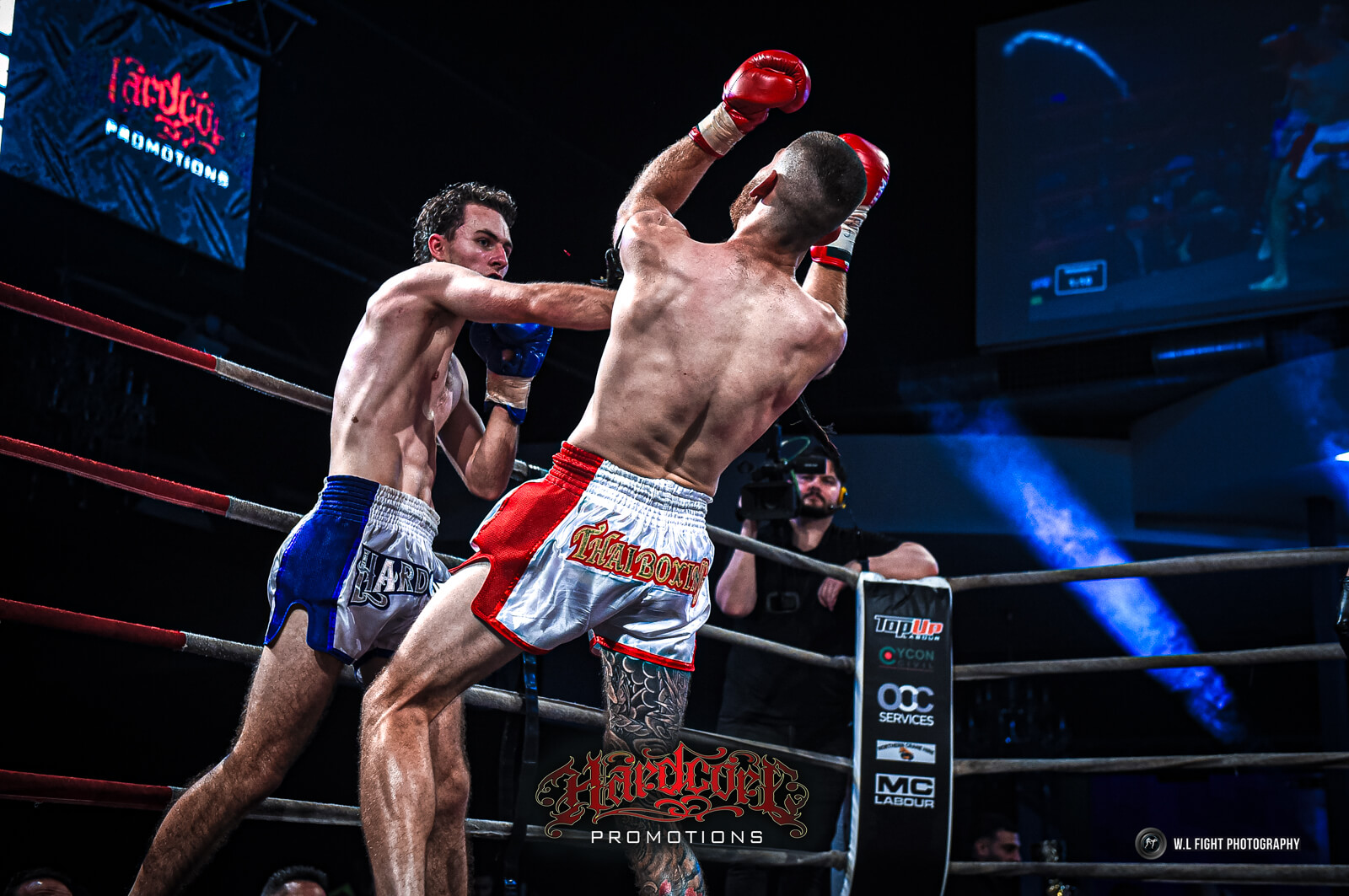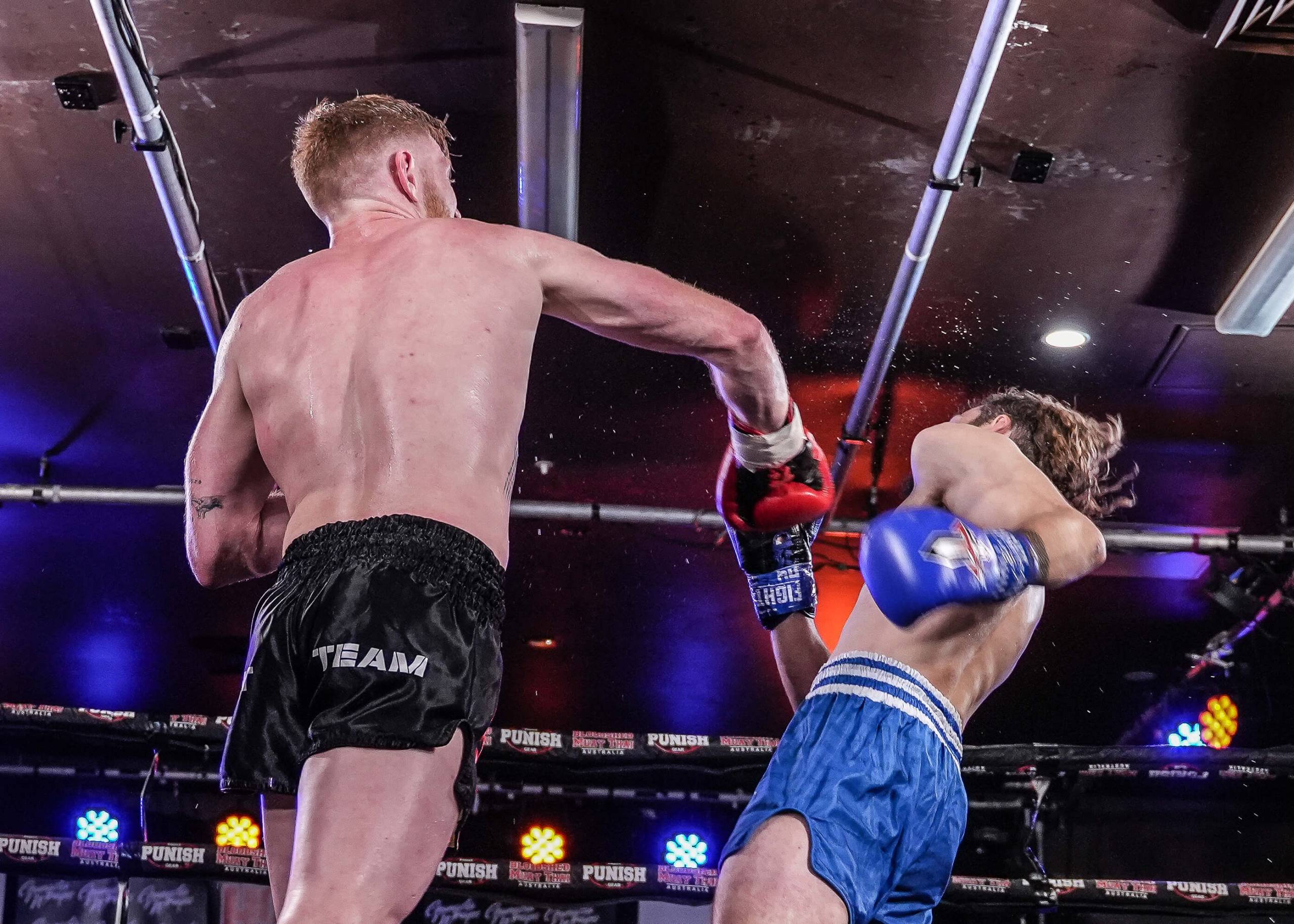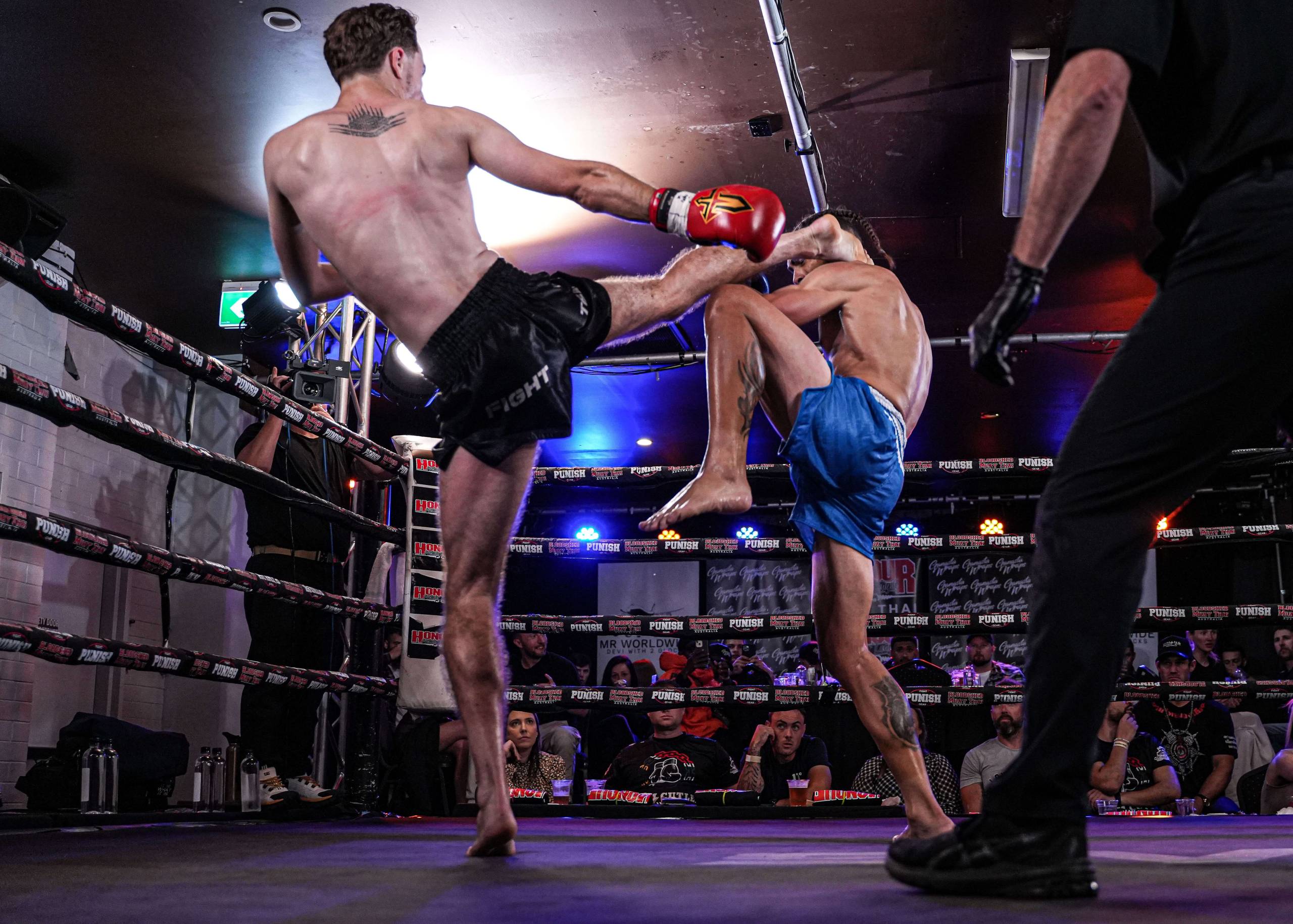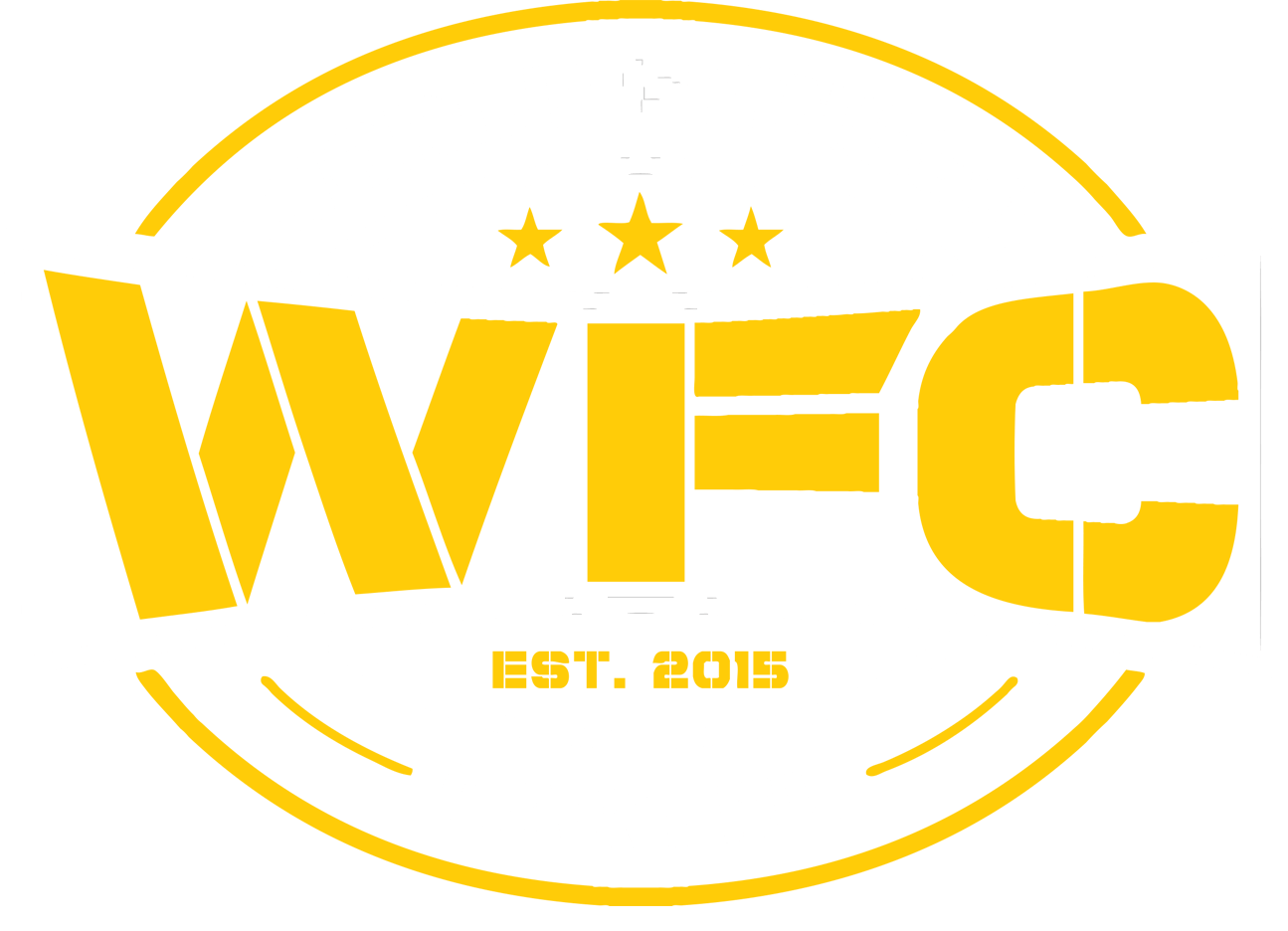
Concussion in Muay Thai: Prioritizing Fighter Safety Above All
As a Muay Thai coach, the primary focus is always on the well-being and safety of the fighters. Within the realm of Muay Thai, a sport renowned for its intensity and physicality, it is imperative to understand and address the risks associated with head injuries, specifically concussions. This blog post delves into the intricate details of identifying and managing concussions in Muay Thai fighters, including an in-depth exploration of symptom recognition, mid-fight diagnosis, and post-concussion protocols for optimal recovery.
Understanding Concussions in Muay Thai
Concussions represent a subset of traumatic brain injuries resulting from forceful impacts or sudden movements to the head or body, causing the brain to undergo rapid back-and-forth motion within the confines of the skull. In the context of Muay Thai, where striking and receiving strikes to the head are intrinsic components of the sport, fighters are particularly susceptible to concussions.
Recognizing Concussion Symptoms
Vigilance is paramount in identifying potential concussion symptoms in Muay Thai fighters. Symptoms may manifest as headaches, dizziness, confusion, nausea, light or noise sensitivity, difficulty concentrating, memory impairment, irritability, difficulty in maintaining balance and gait, or changes in mood and behavior.
Diagnosing Concussions Mid-Fight
While diagnosing concussions during a match presents challenges, swift and accurate assessment is pivotal for fighter safety. If any concussion symptoms arise during a bout, immediate action is imperative. Cease the fight promptly and conduct a thorough evaluation of the fighter, which may entail cognitive assessments and observation of physical demeanor.
Post-Concussion Management
Following a concussion diagnosis, prompt medical intervention and support are essential for the fighter’s recovery journey. The fighter must refrain from engaging in any further training or competition until medically cleared. Encourage the fighter to seek medical attention promptly and adhere to prescribed treatment plans, including adequate rest, cognitive recuperation, and gradual reintegration into physical activities.

Elevating Fighter Safety Over Victory
Central to the coaching philosophy is the unwavering commitment to prioritizing fighter safety above all else. Emphasizing that the long-term health and well-being of the fighters hold infinitely greater significance than the outcome of any single match or the completion of a 15-minute bout. The educational emphasis extends to educating fighters about concussion risks and empowering them to promptly report any symptoms during both training sessions and competitive engagements.
In summation, the meticulous recognition and management of concussions in Muay Thai fighters are instrumental in safeguarding their safety and welfare. By familiarizing ourselves with concussion signs, diagnosing promptly when warranted, and implementing appropriate post-concussion care, we can support fighters in their journey while ensuring their well-being remains paramount.

Informed, Stay Safe
For comprehensive guidance on concussion management specific to Muay Thai, consultation with medical professionals specializing in sports medicine is recommended. Remember, safeguarding fighter safety is a collective endeavor, and through informed practices, we can cultivate a safer environment within the realm of Muay Thai.
10 FAQs related to concussions in Muay Thai fighters:
Q: What is a concussion, and how does it occur in Muay Thai?
A: A concussion is a type of traumatic brain injury resulting from a blow to the head or body that causes the brain to move rapidly within the skull. In Muay Thai, concussions can occur due to direct impacts to the head from strikes such as punches, elbows, or knees, as well as from the force of the head snapping back or hitting the canvas.
Q: What are the common symptoms of a concussion in Muay Thai fighters?
A: Common symptoms of concussion in Muay Thai fighters include headache, dizziness, confusion, nausea, sensitivity to light or noise, difficulty concentrating, memory problems, irritability, difficulty in maintaining balance and gait, and changes in mood or behavior.
Q: How can coaches and trainers recognize the signs of a concussion during training or a fight?
A: Coaches and trainers should be vigilant for signs of concussion during training or a fight, including any observable changes in the fighter’s behavior, balance, or cognitive function. Symptoms such as disorientation, dizziness, or a blank stare can indicate a potential concussion.
Q: What should be done if a fighter is suspected of having a concussion during a match?
A: If a fighter is suspected of having a concussion during a match, the fight should be stopped immediately, and the fighter should be removed from further participation. The fighter should be evaluated by a qualified medical professional to determine the severity of the concussion and appropriate next steps for treatment.
Q: How is a concussion diagnosed in Muay Thai fighters?
A: A concussion diagnosis in Muay Thai fighters involves a comprehensive evaluation of the fighter’s symptoms, including cognitive and physical assessments. This may include asking questions to assess the fighter’s memory and concentration, as well as conducting balance and coordination tests.
Q: What are the potential long-term effects of concussions in Muay Thai fighters?
A: Long-term effects of concussions in Muay Thai fighters can include persistent headaches, memory problems, difficulty concentrating, irritability, depression, and an increased risk of future concussions.
Q: What steps should be taken for post-concussion management and recovery?
A: Post-concussion management and recovery for Muay Thai fighters typically involve rest, both physically and cognitively, to allow the brain to heal. Fighters should refrain from engaging in any contact sports or activities that could risk further head injury until they are cleared by a medical professional.
Q: Are there any specific guidelines or protocols for returning to training or competition after a concussion?
A: Guidelines will vary depending on your location, and governing or sanctioning body. These typically involve a gradual return-to-play protocol under the guidance of a medical professional, starting with light exercise and gradually increasing intensity as symptoms improve. At World Fitness Cartel we follow a strict Concussion Policy which all our coaches and staffed are versed in. Where it’s determined a student has suffered a concussion they have a mandatory 30 day contact ban, and must complete our Concussion Clearance Form which involves seeing a medical professional.
Q: How can coaches and trainers help prevent concussions in Muay Thai fighters?
A: Coaches and trainers can help prevent concussions in Muay Thai fighters by emphasizing proper technique, ensuring fighters wear appropriate protective gear such as headgear and mouthguards, and teaching fighters to recognize and report concussion symptoms promptly.
Q: What resources are available for coaches, trainers, and fighters seeking more information about concussions in Muay Thai?
A: There are several resources available for coaches, trainers, and fighters seeking more information about concussions in Muay Thai, including educational materials from sports medicine organizations, online courses, and workshops focused on concussion recognition and management in combat sports. Additionally, consulting with medical professionals specializing in sports medicine can provide valuable insights and guidance.

Written by Dwayne Harris WFC Founder




